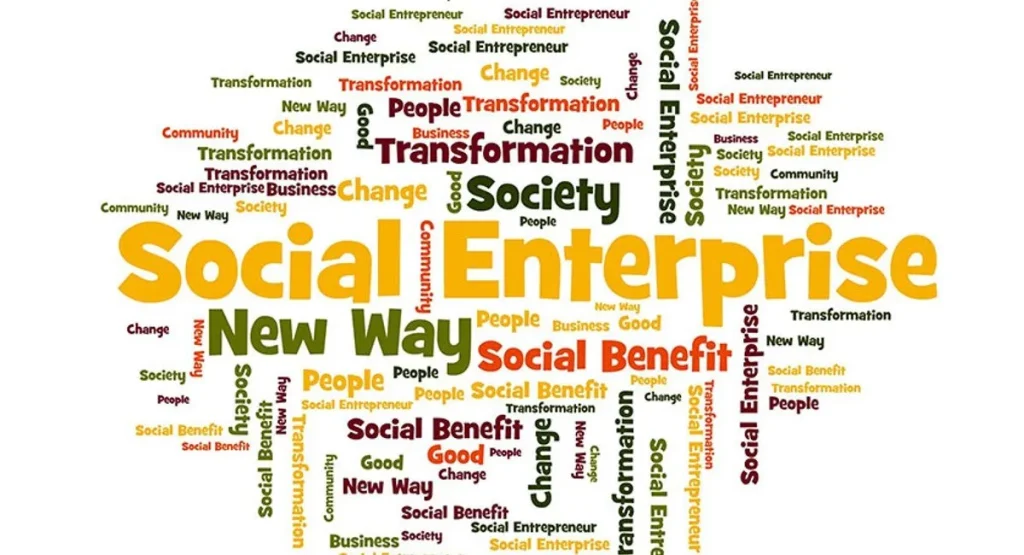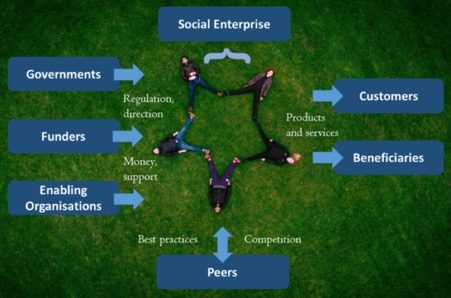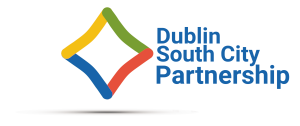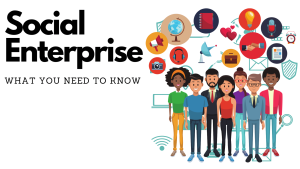What Is A Social Enterprise
A Social Enterprise is an enterprise whose objective is to achieve a social, societal or environmental impact, rather than maximising profits for its owners of shareholders. They reinvest their financial returns into the community to further their social purpose, create employment and other economic and social benefits for marginalised communities. It pursues its objectives by trading on an ongoing basis, through the provision of goods and/or services. It is governed in a fully accountable and transparent manner and is independent of the public sector. If dissolved, it should transfer its assets to another organisation with a similar mission.
Empowering Communities: The Role of Social Enterprises in Local Development

The Solution
We want to embed a social enterprise culture across Dublin South City and support Social Enterprises/Social Entrepreneurs in achieving their goals and social impact. Dublin South City Partnership is committed to increasing awareness of the potential of social enterprises in our communities and encouraging local community leaders, organisations, individuals and residents to explore setting up a social enterprise and supporting local social enterprises that are already established.
Social enterprises:
- Provide income generation opportunities that meet the basic needs of people who live in poverty.
- Are sustainable. Earned income from sales is reinvested in their mission. They do not depend on philanthropy and can sustain themselves over the long term.
- Are scalable. Their models can be expanded or replicated to other communities to generate more impact.
Social enterprises are known by many names: social businesses, social-purpose businesses, mission-driven businesses, social ventures, etc. Whatever the name, social enterprises operate with a double bottom-line of generating financial return while simultaneously advancing a social mission. The triple bottom line (or otherwise noted as TBL or 3BL) is an accounting framework with three parts: social, environmental (or ecological) and financial. Some organisations have adopted the TBL framework to evaluate their performance in a broader perspective to create greater business value.
Social enterprises can be both non-profit and for-profit in form. Some social enterprises are created, operated or owned by non-profit charitable organizations as a means of generating income or to otherwise further their social mission. Other social enterprises are incorporated as a for-profit entity but the business strategy is designed to achieve a social objective.
The persistent problems of unemployment, poverty, social exclusion, poor social services, and environmental degradation – even in fast-growing emerging market economies – call for new, innovative solutions. Neither pure market-based nor pure public sector approaches have effectively confronted these problems.
Social enterprises offer a hybrid response to complex social problems. Social enterprises address the social and economic barriers that face marginalized or disadvantage communities, and attempt to tackle them using a market-based approach. They are often best positioned to respond to critical social problems, as most often they originate as community-based initiatives, close to the problems and with a stake in the outcome. They frequently introduce new products and services to the market, and build market demand by raising awareness around the issues that these are addressing.

Social Enterprise Innovation Model
Social enterprises are an essential element of the Quintuple Helix Innovation Model and are fundamental to the local economy in Dublin South City. Dublin South City Partnership support fledgling, growing and established social enterprises with Governance, Marketing, Sales, Capacity building, Business planning, PR, Communications and Digital Innovation.
![The Quintuple Helix model and its function (functions). Modified from Etzkowitz and Leydesdorff ([2000]), on Carayannis and Campbell ([2006, 2009, 2010]), and on Barth ([2011a]).](https://dublinsouthcitypartnership.ie/wp-content/uploads/2024/03/The-Quintuple-Helix-model-and-its-functions-1024x611.webp)
There are a wide range of social enterprises in Ireland and many organisations in Dublin South City already operate under this model across a number of diverse sectors.
How Does Dublin South City Partnership Support Local Social Enterprises:
We provide business supports and personal practical skills development through:
- Business and capacity building skills support,
- whilst also developing founder and staff
- confidence & leadership skills
- Mentoring, Training & Upskilling
- Navigating & Signposting
- Staffing through labour market programs
- Networking & Procurement Opportunities
- Connecting, Peer2Peer Support & Leaning-In
- Social Business Model Canvas & segmenting/targeting by Industry, Sector,
- Beneficiaries & Social Mission
- Referrals to additional services
Contact us about your social enterprise !
Our social enterprise staff have over 20+ years of experience working globally in the non-profit sector and, specifically, supporting social enterprises and charities with a commercial trading/social return on investment aspect to their work. Contact us with any questions, and for more information about how we can help you.
You can contact a member of our team on 01 473 2196 or email us at julie@dscp.ie
Our office hours are 9am to 5pm Monday to Friday.
Do You Need Support? We Are Here To Help.
Drop Us A Line And Keep In Touch
Enterprise and Social Enterprise Team

